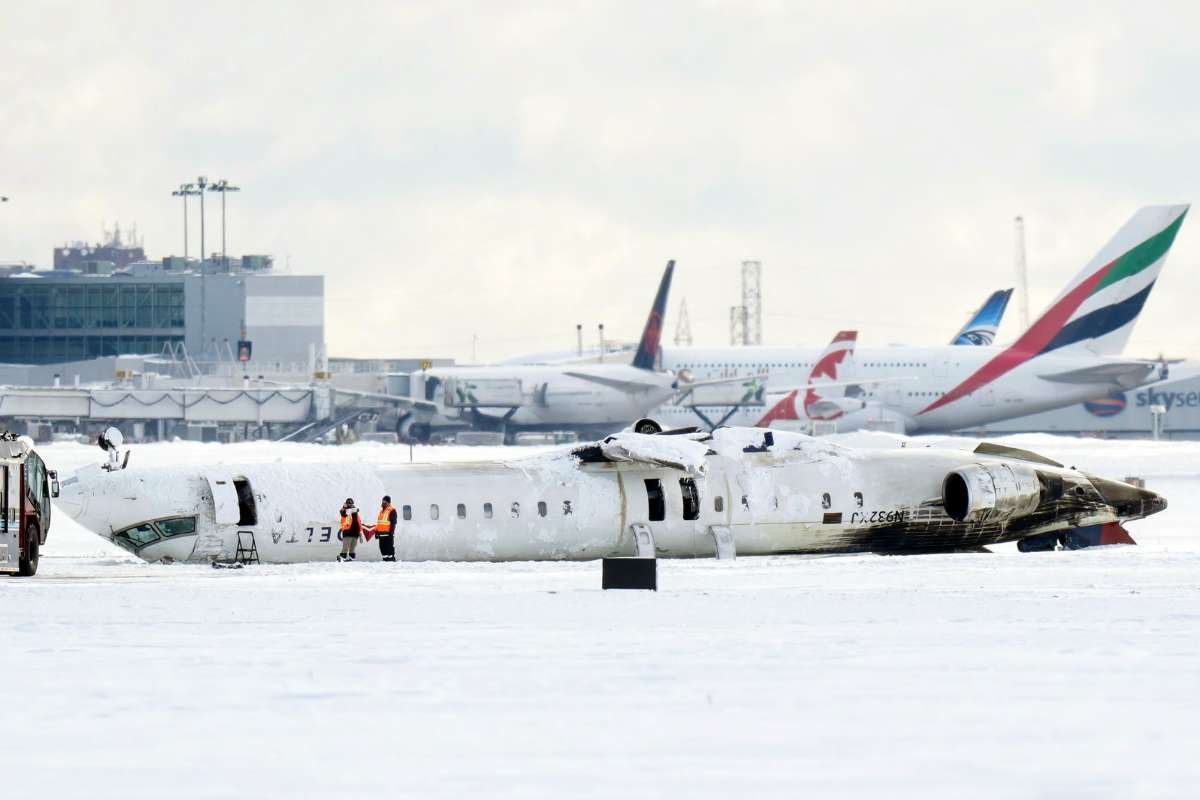Passengers Receive Compensation Offer After Harrowing Incident
Delta Air Lines has announced a compensation offer of $30,000 to each passenger aboard Flight 4819, which crashed upon landing at Toronto Pearson International Airport. The airline’s total payout could reach approximately $2.3 million if all 76 passengers accept the offer. The aircraft, a CRJ900 twin-jet operated by Delta subsidiary Endeavor Air, flipped over and caught fire upon landing on February 17, leaving passengers hanging upside down from their seatbelts. Fortunately, all 80 individuals on board, including four crew members, survived the crash.
According to Delta representatives, the offer is a goodwill gesture with no strings attached and does not impact passengers’ legal rights. Although the compensation is meant to provide immediate relief, legal experts suggest it may not deter lawsuits from those seeking additional claims for medical expenses and lost income.
Details of the Crash and Passenger Safety
The incident occurred at approximately 2:15 p.m. ET when the aircraft, arriving from Minneapolis, attempted to land in Toronto under strong wind conditions. Video footage captured by CNN shows the plane’s rear landing gear collapsing, causing the right wing to shear off and ignite in a fireball upon impact. Emergency crews responded promptly, ensuring the safety of all passengers and crew members.
While many sustained minor injuries, 21 passengers were taken to the hospital for treatment but have since been discharged. The process and timeline for receiving compensation remain uncertain, though legal representatives indicate that passengers who accept Delta Air Lines offer should receive their payments shortly after agreeing.
Legal Ramifications and Future Settlements
Legal experts note that Delta Air Lines compensation offer does not prevent passengers from pursuing further legal action. Attorney Thomas A. Demetrio, a co-founder of Corboy & Demetrio, emphasized that many passengers may still file lawsuits to seek damages for medical expenses and loss of income due to trauma from the crash.
The Montreal Convention, an international treaty governing air travel liability, allows injured passengers to claim up to $200,000 in compensation without needing to prove negligence. If a passenger’s injuries exceed this threshold, they may be entitled to additional damages. Attorney Erin Applebaum, a partner at Kreindler law firm, expects that most cases will be settled outside of court within 12 to 18 months.
Passengers have two years under the Montreal Convention to file a lawsuit, providing them with ample time to assess their injuries and determine their legal course of action. Applebaum noted that the initial payment from Delta serves as both a practical measure and a public relations effort, assisting those in need of immediate financial support. However, she anticipates that some passengers will seek further legal recourse beyond the airline’s offer.
As investigations into the crash continue, the airline faces growing scrutiny over its safety measures and response protocols. Meanwhile, affected passengers weigh their options regarding compensation and potential legal claims. Delta Air Lines offer marks an early step in addressing the aftermath of this traumatic event.










